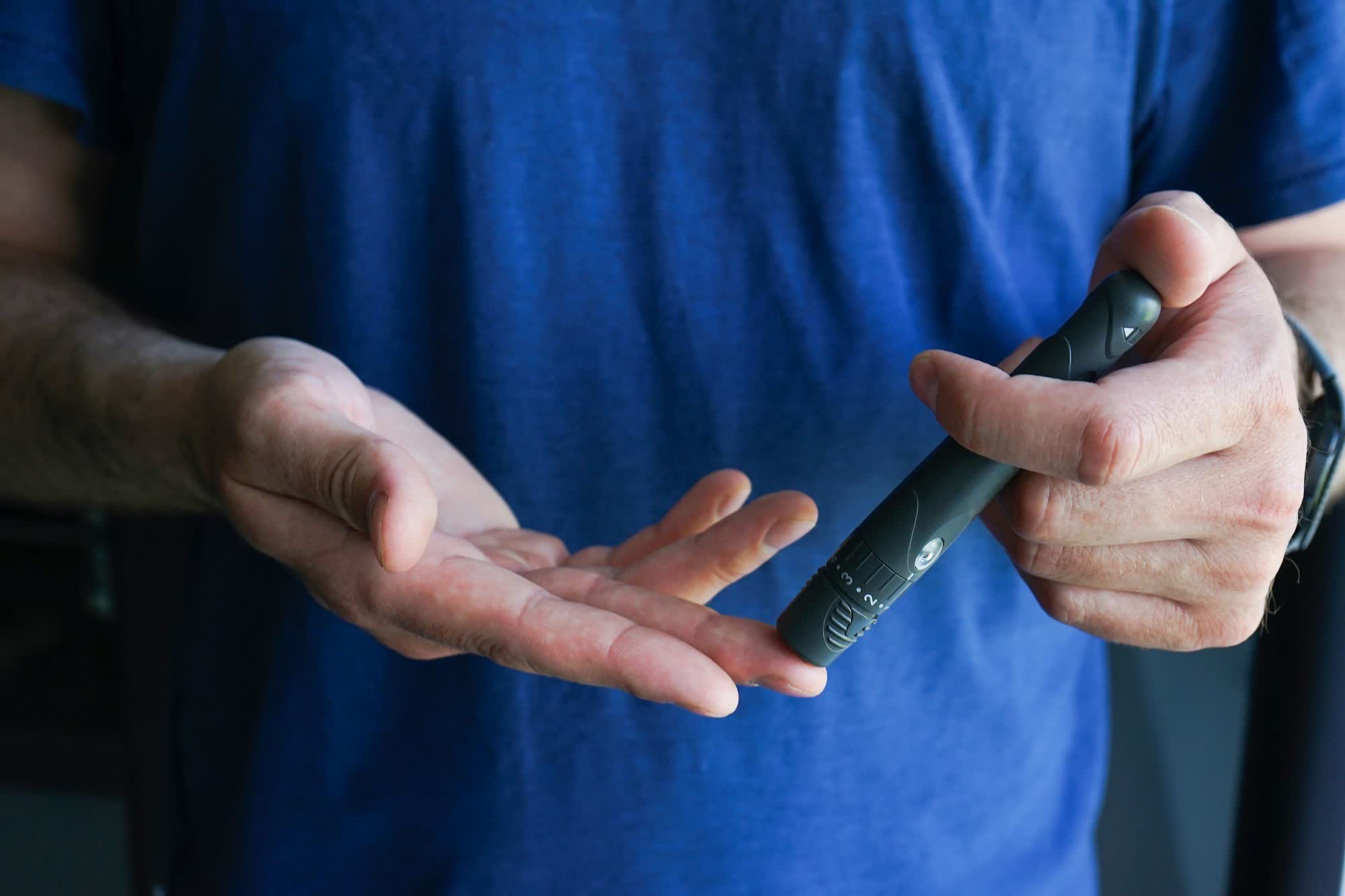Forward-looking: As smartwatches' health-focused features become increasingly advanced, could the next step in the evolution of these devices be non-invasive blood glucose monitoring? According to recent reports, both Samsung's Galaxy Watch 4 (or Galaxy Watch Active 3) and the Apple Watch 7 will be able to display a wearer's blood sugar levels using an optical sensor, which, assuming they're accurate, would be a cause for celebration for the 415 million people living with diabetes.

Conditions such as type 1 diabetes, which affects this writer, require checking blood glucose levels many times every day. It usually involves pricking a finger using a lancet and placing a drop of blood in a glucose meter—a process that causes marks, hardens skin, and can be uncomfortable.
Alternatively, there are constant glucose monitors (CGMs). These small devices contain a flexible, wire-like needle that is fired into the skin. They stay on a wearer for around 10 days, sending blood glucose data to a smartphone or smartwatch every few minutes. CGMs are able to warn diabetics when their blood glucose levels are going dangerously low or high while being much more convenient than finger pricking. But the need to replace them several times each month means they're costly. CGMs are also easy to knock off the skin, can be very itchy, and sometimes bleed.

A smartwatch displaying glucose levels taken from a CGM. Accuracy is important to avoid hypoglycemia
Korean media claims that the next smartwatches from both Samsung and Apple will feature optical glucose monitors, which work by shining a light through the skin to measure levels continuously. Apple reportedly hired a biomechanical engineer team in 2017 to work on the feature, while Samsung developed a glucose-monitoring method last year called Raman spectroscopy that uses lasers to identify chemical compositions.
On a personal level, these features sound amazing, but their appeal to diabetics will depend on the accuracy. Even invasive CGMs, which measure the glucose in fluid surrounding a body's cells—called interstitial fluid—aren't always 100 percent correct, so it's hard to imagine an optical sensor being as accurate as finger pricking, but here's hoping.
The Apple Watch 7 and next Galaxy smartwatches are expected to arrive later this year.
Masthead image credit: VI Studio
https://www.techspot.com/news/88398-next-apple-samsung-smartwatches-could-feature-non-invasive.html